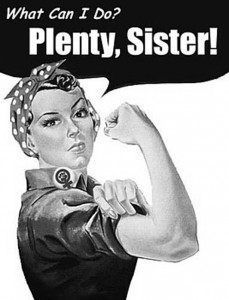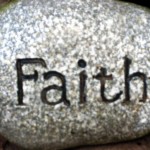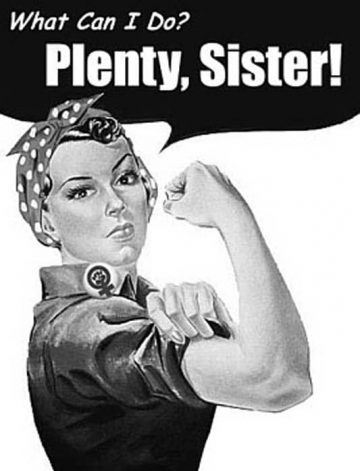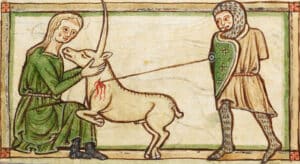Each General Conference, I sincerely try to think of messages that are uplifting to share in visiting teaching. In most speeches and  every session, there are a few that resonate, including in from the April 2013 Conference. Once in a while, one talk really grabs me. Like from this conference. But this time, the talk that struck me seemed to also strike those around me. In the last few weeks following conference, nearly every person I have spoken to about conference, prompted or not, has mentioned Elder Holland’s speech.
every session, there are a few that resonate, including in from the April 2013 Conference. Once in a while, one talk really grabs me. Like from this conference. But this time, the talk that struck me seemed to also strike those around me. In the last few weeks following conference, nearly every person I have spoken to about conference, prompted or not, has mentioned Elder Holland’s speech.
This speech resonated with me as well. Following the miracle of the first recorded woman to pray aloud at a general conference, I had hope—more hope that I have in a long time. To be clear, I do not believe that prayer chains or letter writing campaigns can move God or change God’s will. But I do believe that as we seek, individually or in a group, for revelation to be revealed, it can be shown. I als believe that when we ask, then seek and knock for the miracles that God has already in store for us, that we will be blessed in the manner appropriate for this time as determined by God. I confess, I did not hope for a woman to be invited to pray at General Conference, even with the letter-writing campaign. Nonetheless, I sent in a letter with the campaign. I wrote my letter to support the friends who did believe. My letter was in testimony of something I felt was right, yet I did not have faith could happen. I had faith in my friends. And then, it happened. The prayer happened.
For me, this has been a brilliant reminder of faith—of my own. And of hope. The hope to believe. The witness that even among so many challenges, there are blessings, even if small—that are perfect reminders and witnesses that our prayers are heard. That our letters, symbolic of prayers offered to God, are heard, are read, are accepted. As Holland expressed:
I am not asking you to pretend to faith you do not have. I am asking you to be true to the faith you do have. Sometimes we act as if an honest declaration of doubt is a higher manifestation of moral courage than is an honest declaration of faith. It is not! So let us all remember the clear message of this scriptural account: Be as candid about your questions as you need to be; life is full of them on one subject or another. But if you and your family want to be healed, don’t let those questions stand in the way of faith working its miracle.
Furthermore, you have more faith than you think you do because of what the Book of Mormon calls “the greatness of the evidences.” “Ye shall know them by their fruits,” Jesus said, and the fruit of living the gospel is evident in the lives of Latter-day Saints everywhere. As Peter and John said once to an ancient audience, I say today, “We cannot but speak the things which we have seen and heard,” and what we have seen and heard is that “a notable miracle hath been done” in the lives of millions of members of this Church. That cannot be denied.
Brothers and sisters, this is a divine work in process, with the manifestations and blessings of it abounding in every direction, so please don’t hyperventilate if from time to time issues arise that need to be examined, understood, and resolved. They do and they will. In this Church, what we know will always trump what we do not know. And remember, in this world, everyone is to walk by faith.
So be kind regarding human frailty—your own as well as that of those who serve with you in a Church led by volunteer, mortal men and women.
“Human frailty.” Oh, yes! We all have challenges. Years ago, President Eyring reminded us, that ““When you meet someone, treat them as if they were in serious trouble, and you will be right more than half the time.” Even if we are not in “serious trouble,” we all have times in our lives when we are met with challenges that rock us to the core. Sometimes, we even berate ourselves for being so largely affected by something that we perceive should be easy to deal with, or compare our burden, our doubt and our challenge to someone else, who seems to be carrying their own burdens so well. Or maybe that is just me (?).
But this is one of the reasons I loved Holland’s talk—he said, “be kind regarding to human frailty.” To me, this means I need to be kind to myself. To not undermine my own dreams and desires by not trying; especially by not even praying, by not even hoping, by not even trying.
“Hope and faith are not only interrelated but interdependent. With that understanding, then, let’s change the phrase “have faith” to “do faith.”-Anita R. Canfield, A Perfect Brightness of Hope, Deseret Book, 1991, 4.
 My faith is imperfect. My trust is weak. My habit of prayer ebbs and flows. But I do have faith, no matter how flawed. And I can trust, or I can at least try to, however vulnerable I may feel. And I can pray, even when I am interrupted, or forget to do so sooner in my day, or even regularly. And, even in these conditions of mortality, *because* this is my “mustard seed” of faith, hope and prayer, miracles can and will happen. As Holland said, “I am not asking you to pretend to faith you do not have. I am asking you to be true to the faith you do have.”
My faith is imperfect. My trust is weak. My habit of prayer ebbs and flows. But I do have faith, no matter how flawed. And I can trust, or I can at least try to, however vulnerable I may feel. And I can pray, even when I am interrupted, or forget to do so sooner in my day, or even regularly. And, even in these conditions of mortality, *because* this is my “mustard seed” of faith, hope and prayer, miracles can and will happen. As Holland said, “I am not asking you to pretend to faith you do not have. I am asking you to be true to the faith you do have.”
That is what I take and choose to share from this conference. Be true to the faith you do have. In doing this, you embrace your own relationship with Christ, meaning that the relationship is strengthened based on what is there, no matter how small.
“Again I ponder the difference between dictating to God and demonstrating the kind of faith that works miracles. And I think I must believe this way: I have no right to assert complete faith that God will give me this blessing. But I do have a right to assert complete confidence that this decision will not be left to chance or human impulse. I have the right to know that is something this momentous, God’s judgement and none else’s, will rule. This I can know, and really, this is all I need.” –Carol Lynn Pearson, Will I Ever Forget This Day, Bookcraft, 1980, 94.
How can you find peace in the faith you do have, rather than on prefect (unattainable in mortality?) faith?
What are your thoughts on Holland’s speech?
Which speeches struck you from conference as something you wish to share with others?






7 Responses
There wasn’t anything that really spoke to me. I did like the YW talks more.
I will tell you what I took for VT this AM–the new YW presidency’s biographies. The president appears to be from solid Utah stock. BUT, her parents, it said, wanted their kids to grow up outside Utah. The first counselor’s parents joined the church when she was young, and the 2nd counselor didn’t join the church until she was grown, and out of college.
I haven’t gone back to review all the previous presidency’s bios, but I would bet these women look a little different? The youth curriculum, as noted above, is changing to teach young women how to be solid in the gospel, to study for themselves, and I think to be amazing missionaries. This new presidency seems like women who are grateful for missionary work, and will be more in touch with young women throughout the world who are new to the gospel. I think/hope they will be able to recognize what is Gospel and what is Tradition and bridge that gap for new members.
Nothing really stood strongly out to me at first, either- though after some time, the Holland contribution triggered more responses. I have not yet listened to the YW general session, and I think it is speaks to you, then by all means share it.
I am by no means a stickler, and have been known to share talks from the (presumably male) Preisthood session in visiting teaching, so I am open to the Young Women session being included as a visiting teaching source . I seem to often visit teachin inactive women, so always try to be sensitive to not waif assumptions of religiosity at these women (or even “active” women), so try to be more open in these posts.
Are there specific quotes that you found inspiring from the YW session that you could share here?